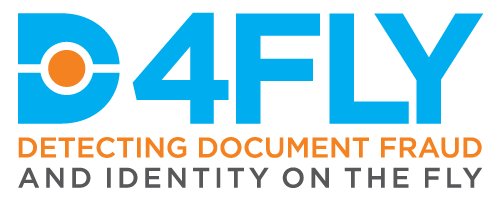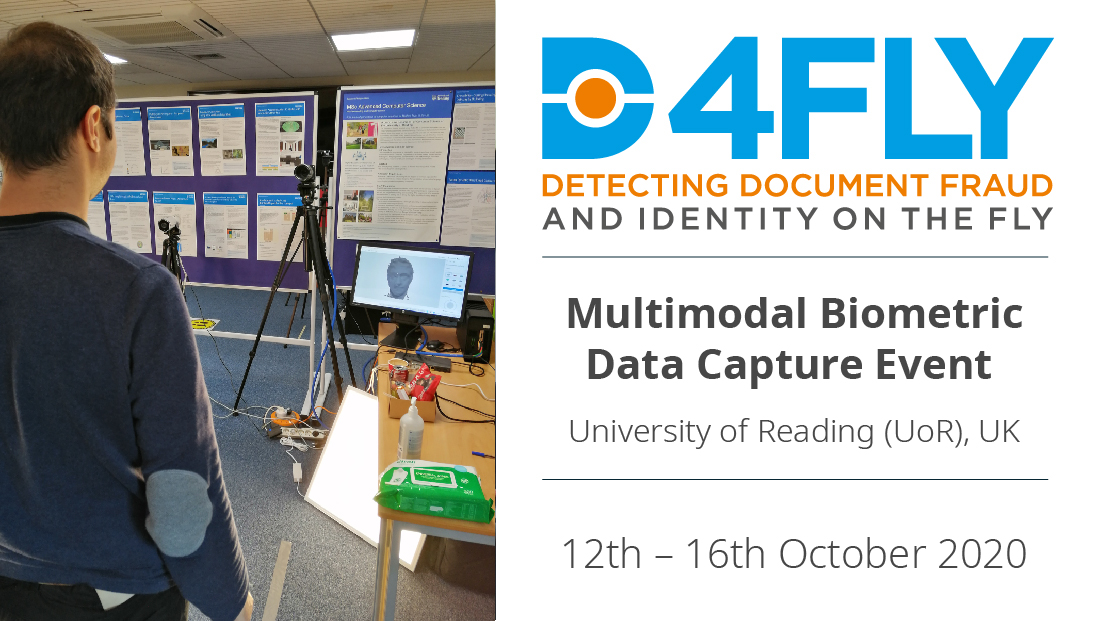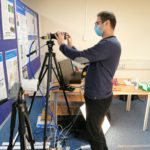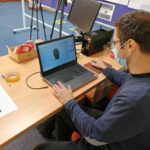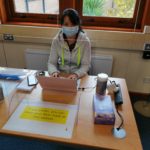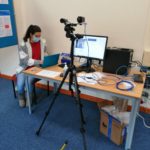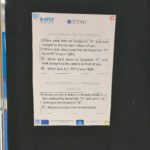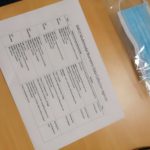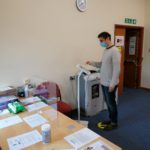The D4FLY Multimodal Biometric Data Capture Event was held during the week 12th – 16th October 2020 in the premises of the University of Reading (UoR), UK.
During the event, the D4FLY consortium partners, involved in Work Package 5 “Biometric Technologies for Identifying People”, captured biometric data of the different modalities described within D4FLY project, from volunteers consisted mostly from students and staff from the University of Reading as well as members of D4FLY consortium. People from the Military University of Technology (WAT) in Poland, the Norwegian University of Science and Technology (NTNU) and VERIDOS GmbH where the key technology providers and moderators of the event led by UoR.
WAT used a typical IP camera as well as a thermal camera in order to capture the visible and thermal images of the faces of the volunteers. UoR used a developed Android application to collect smartphone sensor data from each individual volunteer while they were performing instructed tasks holding the phone. NTNU utilized the Raytrix monochromatic R26 camera in order to capture the 3D faces of the volunteers. Additionally, two typical IP cameras were used in order to capture the somatotype as well as the 2D face trait. Finally, VERIDOS used three Raytrix cameras as well as commercial equipment for capturing the iris of the volunteers. All aforementioned data captures were made both static and on-the-move.
A multimodal biometric dataset will be created combining the data collected from the event which will be exploited for a two-fold purpose: i) for further assessing the identification techniques, developed by D4FLY technical partners involved in WP5 and WP6 “Alternative technologies to identifying people” tasks, for each individual biometric modality; ii) for evaluating different fusion schemes that are to be implemented within D4FLY WP5 context.
Finally, it should be highlighted that the event and the adopted procedures were approved by the Ethics Committee of the University of Reading. Colleagues from Trilateral Research (TRI) were present during the data collection event and took responsibility at the reception desk to provide information to the volunteers about the event and help the volunteers with signing the consent form. The volunteers were explicitly informed about the event and provided their consent in order to have their biometric data captured.
COVID-19 measures: The data collection event took place during the COVID-19 pandemic. Following national and university health and safety recommendations, special COVID-19 safety measures were implemented during the whole event, e.g. used a one-way system, barriers were set up to keep social distancing, face covering was required for all team members and cleaning and disinfectant products were used.
